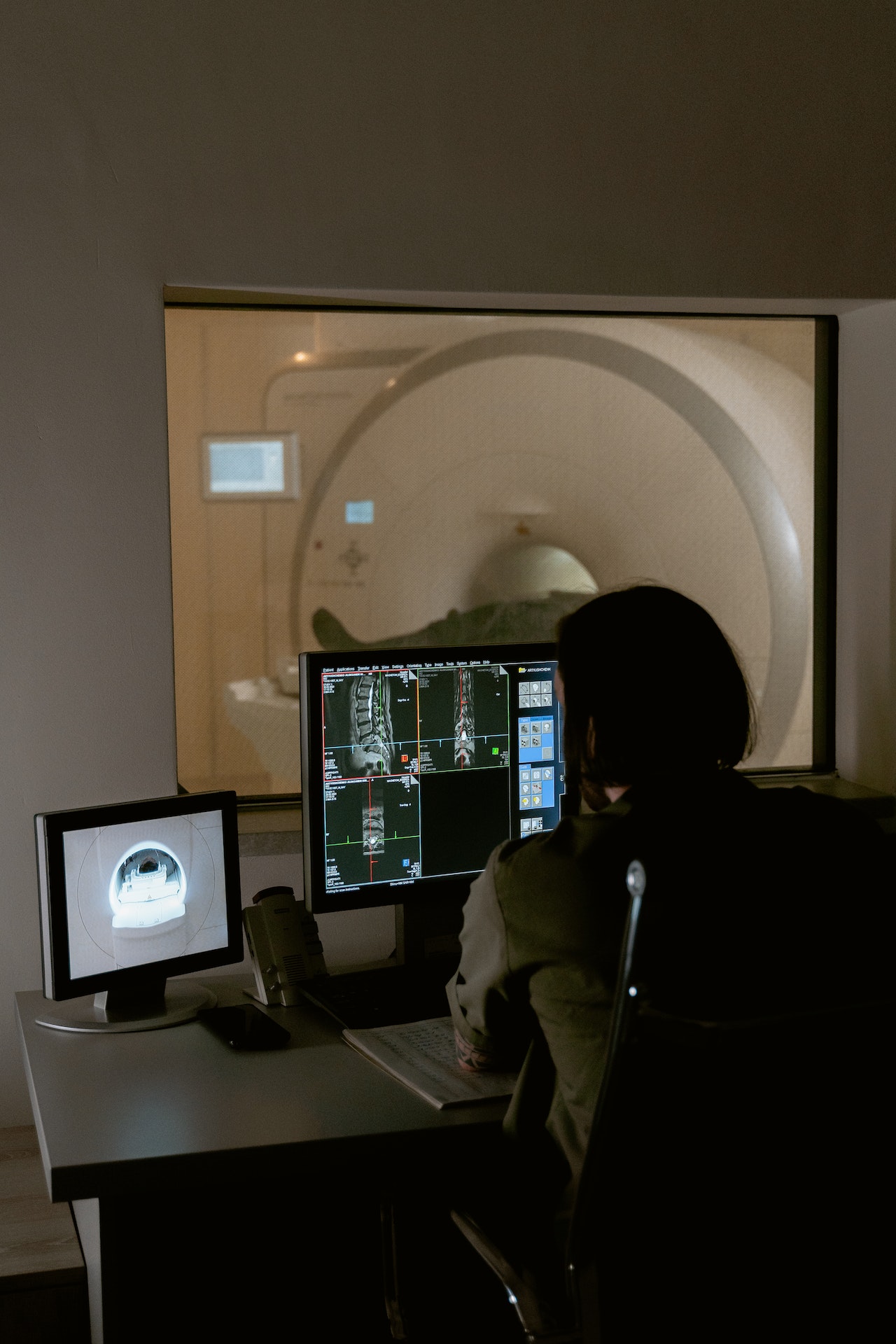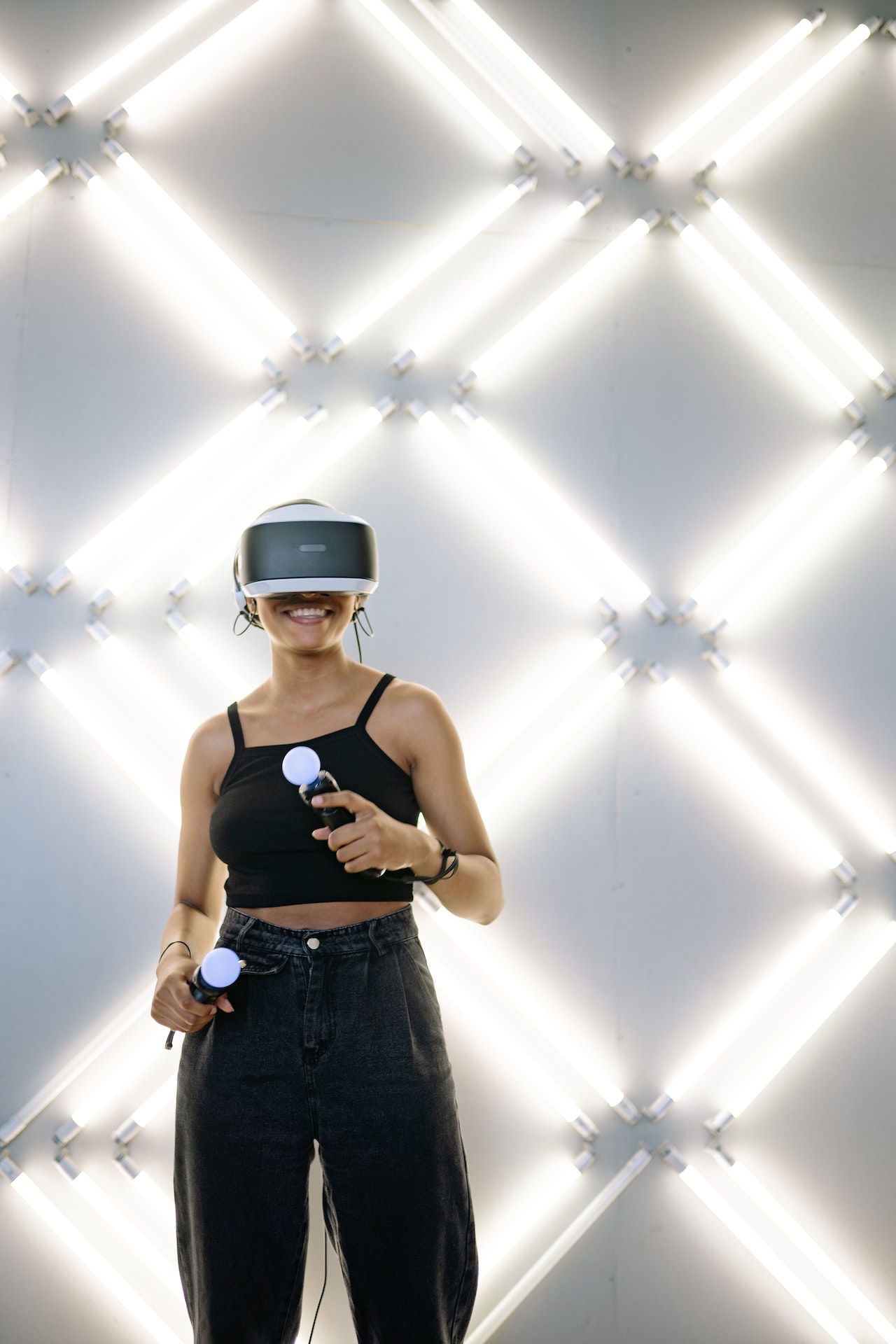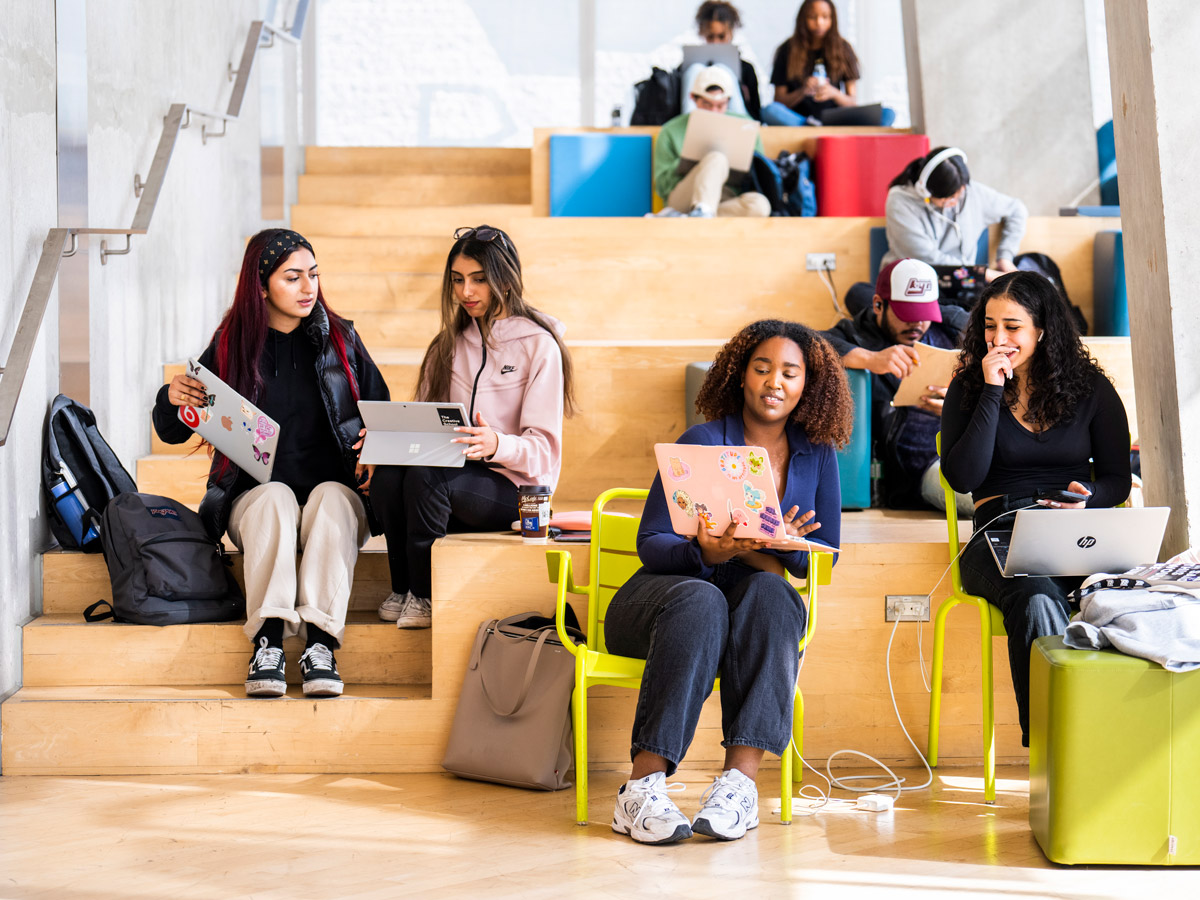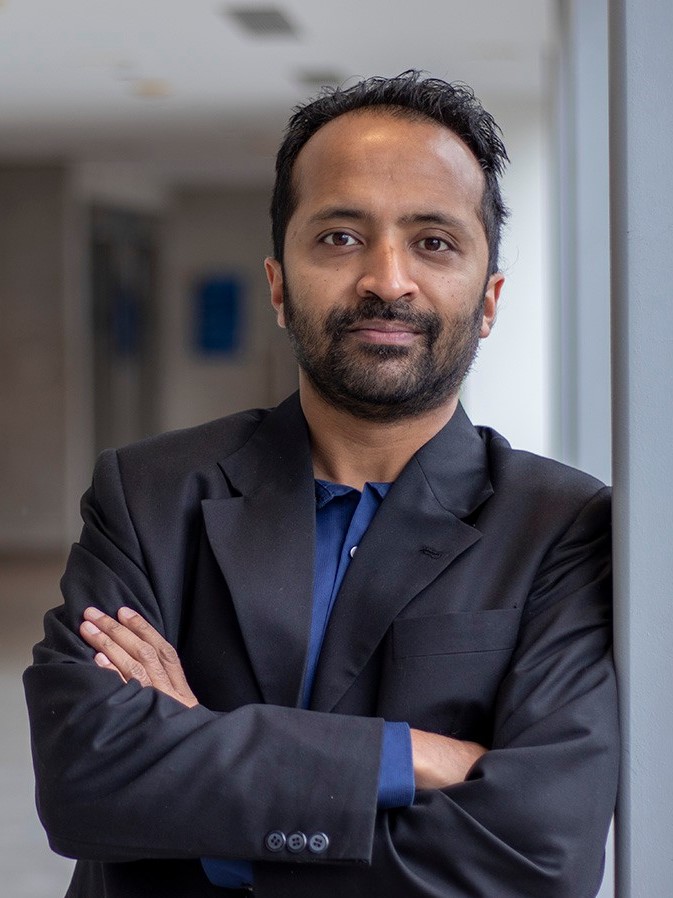EngSpotlight Interview: Computer Engineering
Hi everyone! I am Dr. Naimul Khan. I'm a professor in Electrical, Computer and Biomedical Engineering. I came to Canada as an international student, and I actually did my PhD in TMU. An interesting fact about myself is that my handwriting is really bad! And a lot of students asks “please can you rewrite this part of the code that you wrote on the whiteboard?” So I have worked hard to fix it but I'm glad that I'm in engineering so I don't have to handwrite as much.
What are the different fields that Computer Engineers can specialize in?
Computer Engineering is a pretty wide field, pretty deep field. It's closely related to Computer Science as well. As you can see, our department is called Electrical, Computer and Biomedical Engineering; three programs are lumped together. So Computer Engineering, they can specialize in hardware, in computer architecture, in software engineering, which is now the big field like in artificial intelligence, robotics, computer security. That is also a big area now with the advent of cloud computing and whatnot. These are probably the biggest fileds that people can specialize in Computer Engineering.
What are some of the pressing challenges faced in the Computer Engineering field?
What I would say is that the most pressing challenge for Computer Engineering and engineers, as a whole, is learning more about the non-engineering aspects of it. When we study engineering, sometimes, we get too hung up with the technical details, and we don't think about how it can affect the society. And so, for engineers nowadays, it has become increasingly more important to learn about the non-engineering aspect of their work. So, at a high level, how their work is impacting others, not just from the technical point of view, but from a social point of view as well.
What does Computer Engineering mean to you?
The answer has actually changed over the years, but with the infiltration of engineering in every aspect of our lives, I would say that, for me, Computer Engineering means the betterment of the society as a whole.
Where do you see Computer Engineering research in the next 10 years?
If you have looked at recent Computer Engineering research, you'll see that AI is the hottest topic now. So I would say that in the next 10 years, AI is going to probably rule the Computer Engineering world. So, in every aspect, whether it's security, whether it's finance, whether it's healthcare, everyone here is gonna play a major role and Computer Engineering is obviously a big part of the infiltration of AI into these different areas of our lives.
Can you speak about the intersectionality between Computer Engineering and other fields?
From my personal experience and from my research labs’ experience, Computer Engineering plays a big role in, say, the media, like all the movies that we see. Computer Engineering plays a big role because of the motion capture system that they use, the way they film, all of this comes from a lot of big research labs that develop this type of software. From my labs' work in the healthcare sector; analysis of images or taking images or even image guided surgery and stuff like that, these are all the advent of Computer Engineering into healthcare. And these types of examples, I can basically go on forever. In every field, no matter which field, Computer Engineering now plays a role because of the requirement of digitization that has been brought upon us, especially after the pandemic as well.

You wrote a publication titled “Transfer Learning with Intelligent Training Data Selection for Prediction of Alzheimer’s Disease.” Can you tell us more about machine learning and computer vision?
Just to give a background about that publication and how that work relates to Computer Engineering and healthcare. So in that work, what we were doing was essentially Alzheimer's disease, it's diagnosed through an MRI scan of the brain, and from MRI, you usually try to see how much of the white matter has reduced to predict the severity of Alzheimer's. Right now, it's done manually by doctors. So the idea is that can AI help the doctors in differentiating between the progression of Alzheimer's, severity of Alzheimer's? This is a pretty big research area and from that publication, I'm now collaborating with Mount Sinai Hospital in Toronto, where we're using similar things for ultrasound images on premature babies. Mount Sinai Hospital has a big intensive care unit, so they have the ultrasound to diagnose different diseases from premature babies. That project is also using similar types of algorithms of how AI can decipher different types of diseases and their severity to image processing, which is like a big part of Computer Engineering. Students, if you end up taking grad studies, you are likely to take courses in image processing and then you will actually get to learn how these things work from a technology standpoint as well.
What is one of your memorable engineering work experiences?
I love answering this question. So, in my research lab, my research is mostly AI and its application in healthcare. So one of the projects we are working on is very interesting. So what we do is, with Holland Bloorview Hospital and a local Toronto company, named Shaftesbury, what we are developing is a therapeutic, virtual reality gaming application for kids with autism spectrum disorder. So I think that project is probably, not only for me but for my grad students in the lab, that is probably the most interesting and memorable project that we have ever worked on because working with kids and developing therapeutic gaming applications that help in reducing their anxiety. You rightaway see that hardcore engineering projects, how it's positively affecting people, and positively affecting the healthcare field as a whole. So I would say that is probably the most memorable project that I've done in engineering.
Can you speak more in depth about the work you and your students do at the “The TMU Multimedia Research Laboratory”?
I actually did my PhD here as well with Dr. Ling Guan, who is a professor in the same department. Our main work is multimedia research. Researching analysis of multimedia through AI then multimedia communication over networks and multimedia compression and multimedia retrieval, all of these big research areas have quite a few grad students in the lab now. I have six PhD students, five Master's students, and my students do most of the great work and as I said, a big application area is AI in healthcare. Another interesting application that we work with is augmented and virtual reality, and they're all connected. Augmented virtual reality has some application in healthcare as well and also in media, in analyzing, building, planning, manufacturing. These are all related careers. So these are the two big research areas we are currently working on; augmented virtual reality and then application of AI in healthcare.

What do you see as key future developments in your field?
I will divide it up into software and hardware. On the software side, it will be again, as I say, AI. Not only the theoretical development of AI, but also the libraries that are being developed to deploy AI on a massive scale in a more accessible manner in every application area of our lives. And on the hardware side, big development of this AI and software integration has been because of hardware like the graphical processing units and stuff like that, like big development in those areas. Computer architecture, quantum computing, and in general, graphical processing unit development of more powerful graphical processing units, AI processing units and Tensor Processing Units, that would be on the hardware side. And in the software side would be development of different libraries that can easily deploy AI.
How should Computer Engineering students better equip themselves for the professional field?
As a professor, the first thing I always say is that, keep your grades up. Obviously, that is very easy advice to give. But other than that, I would definitely recommend doing a co-op. Co-op is so important now because the field is very competitive, although there's a lot of jobs and a lot of opportunities after you graduate to work in Computer Engineering, but it's competitive as well. You're competing with many, many other people because the field is growing at a massive scale. Do a co-op, keep your grades up, and I would say, try to think about things from a high-level point of view, from a system point-of-view rather than just doing problems on paper. Obviously, you get hung up with exams and in the exams you have to solve mathematical equations and problems, but try to think about the big picture of things, because when you go into professional development, a lot of the day-to-day things that you'll be doing, you'll be learning on the job anyway. Looking at things from a big picture point-of-view and trying to understand the human problem is a very important skill to develop. And again, some of it will develop through your co-op, but some of it is kind of internal growth as well as you go through your program. Even when you do your Capstone project, try to think about the project from a big picture point-of-view rather than getting hung up on the nitty-gritty details.
What is your advice for first-year engineering students?
For first-year students, honestly, the easiest advice is, keep your grades up. I know it's easy to say but difficult to do. Even when I was a first-year student, I did not do that well in some of the courses, to be honest. But just focus and try to keep your grade up. In addition to that, try to do extracurricular things as well. Don't force yourself with a "ah, I have to do an extracurricular activity" mindset. Do something that you enjoy alongside your academic advancement. TMU has a lot of hobbies and clubs. I know that some students have joined the drone development team, racing car development team and you could probably find a lot of interesting aspects of engineering that you can apply to a competition or to join a club where people are developing something together. That will kind of show you that the academic things that you're learning have a direct application, and it's fun to do as well. So, I would say keep your grades up, that's number one. Number two is try to join an extracurricular activity related to engineering that you think you will enjoy.

